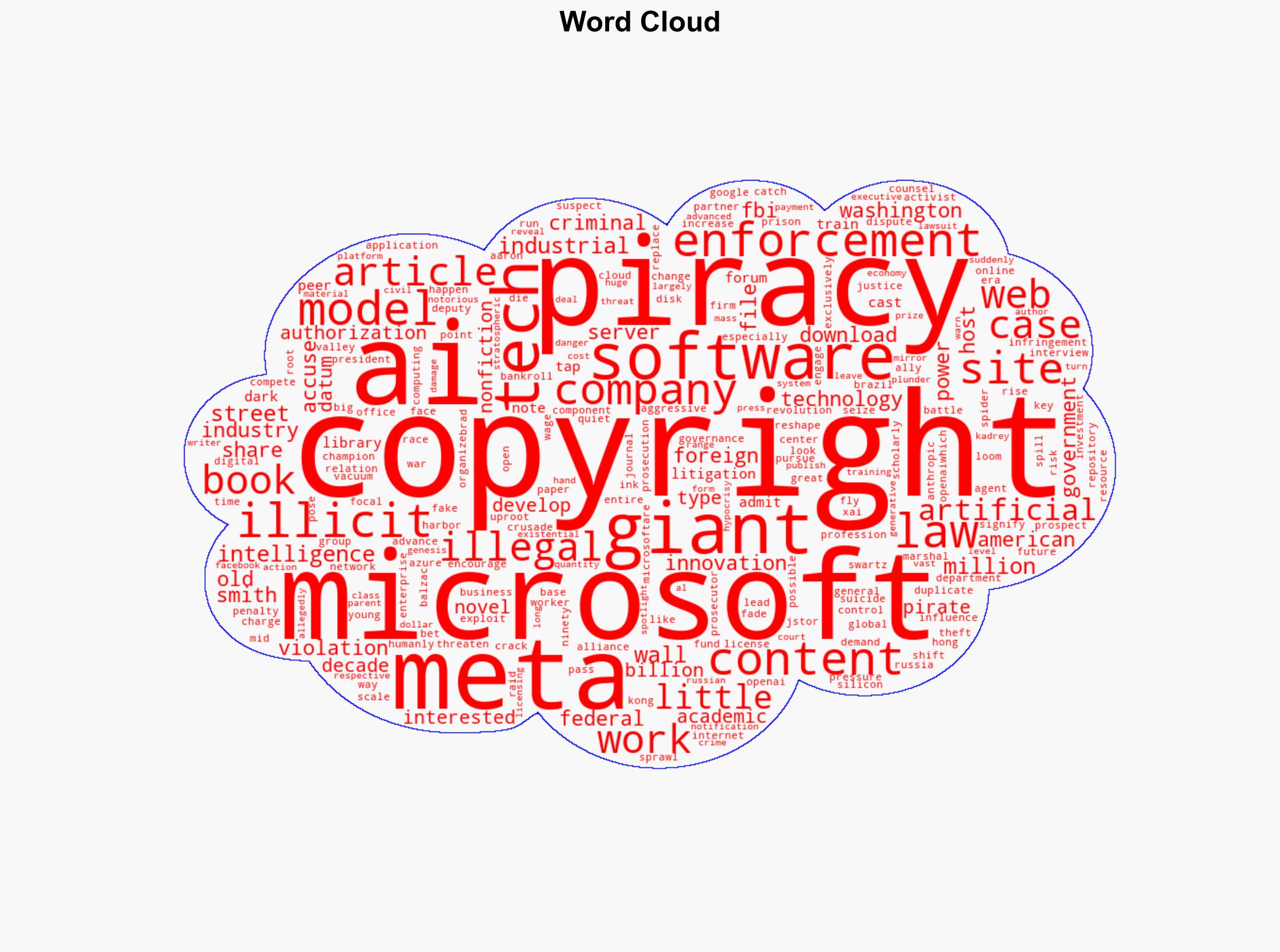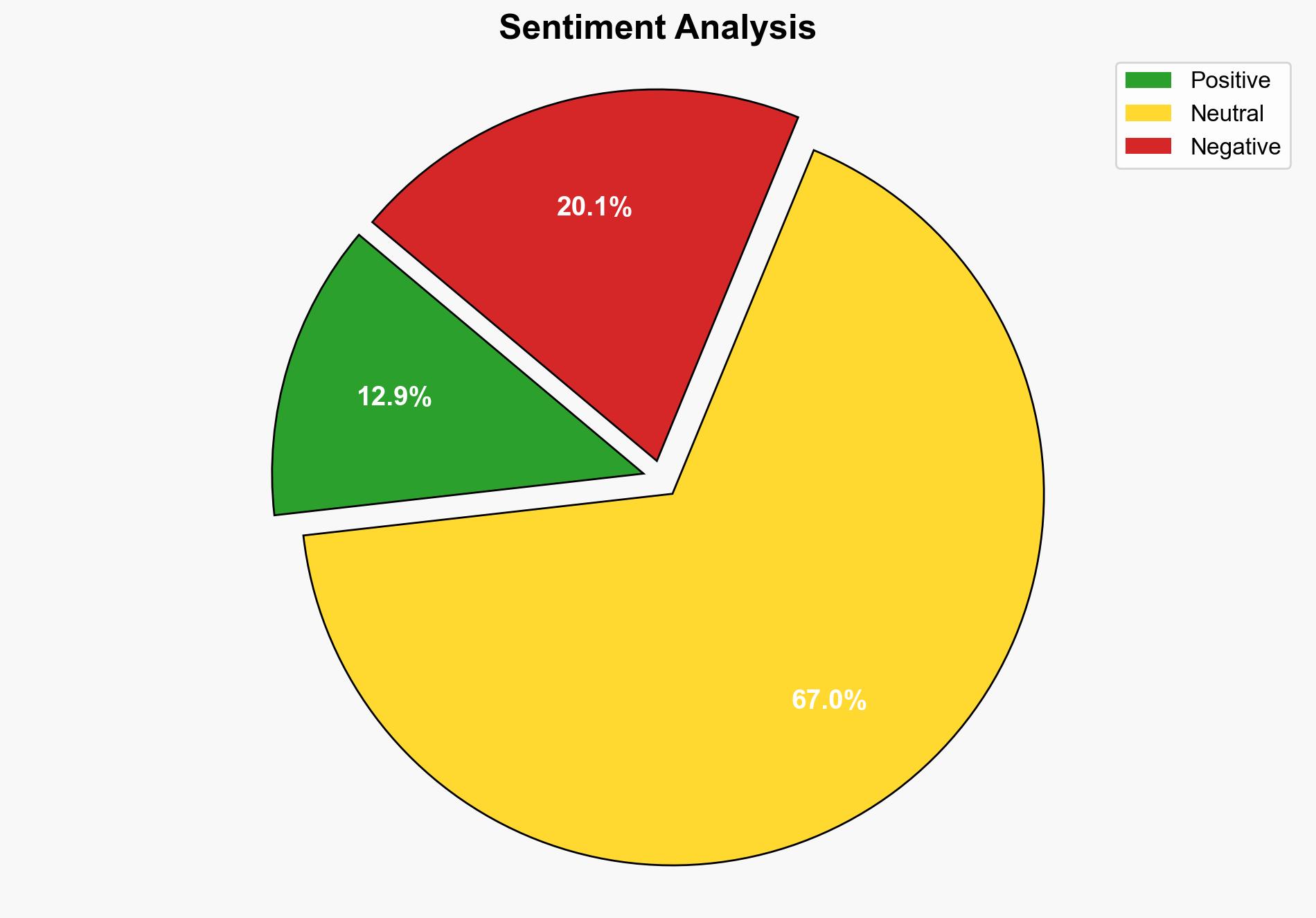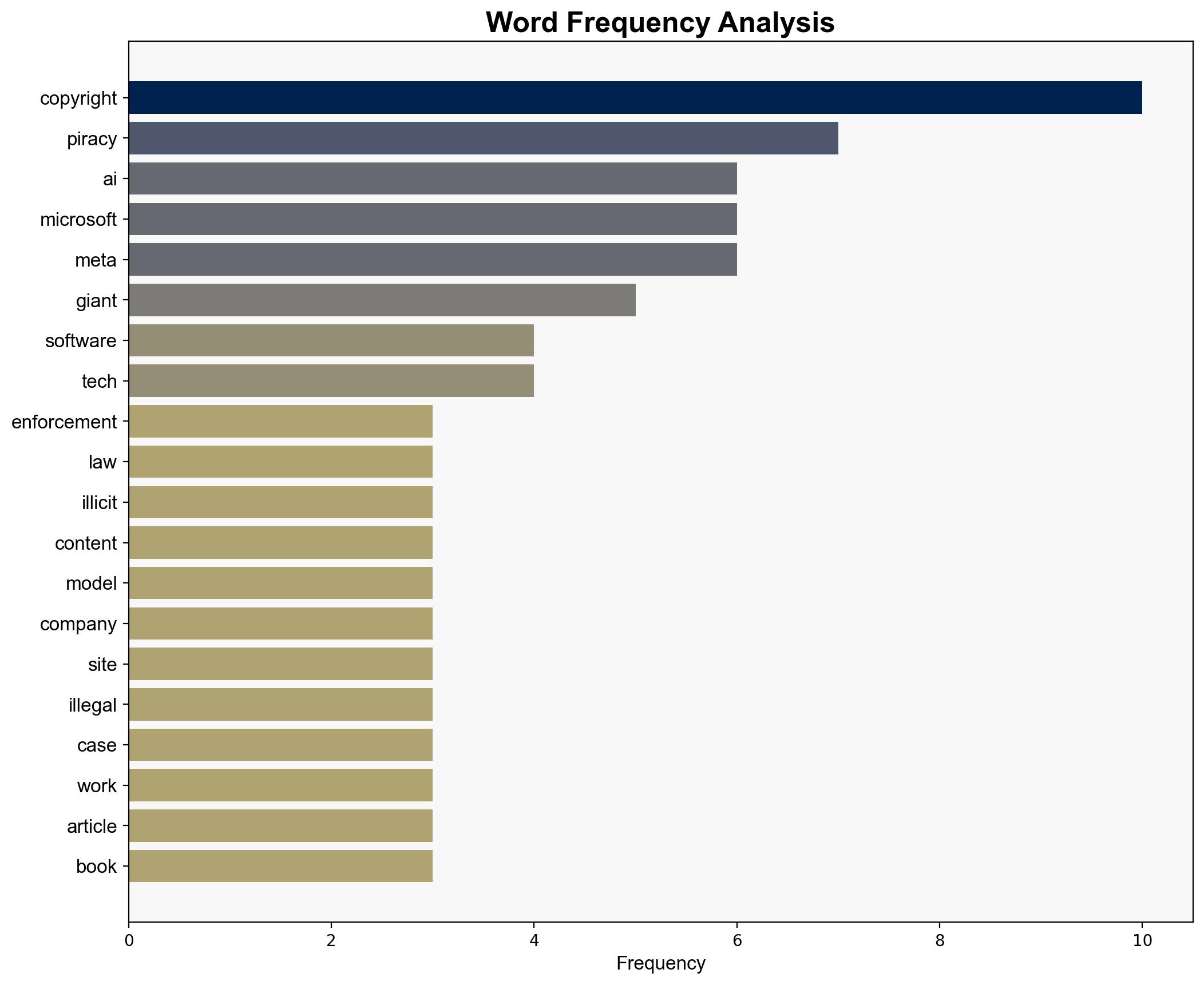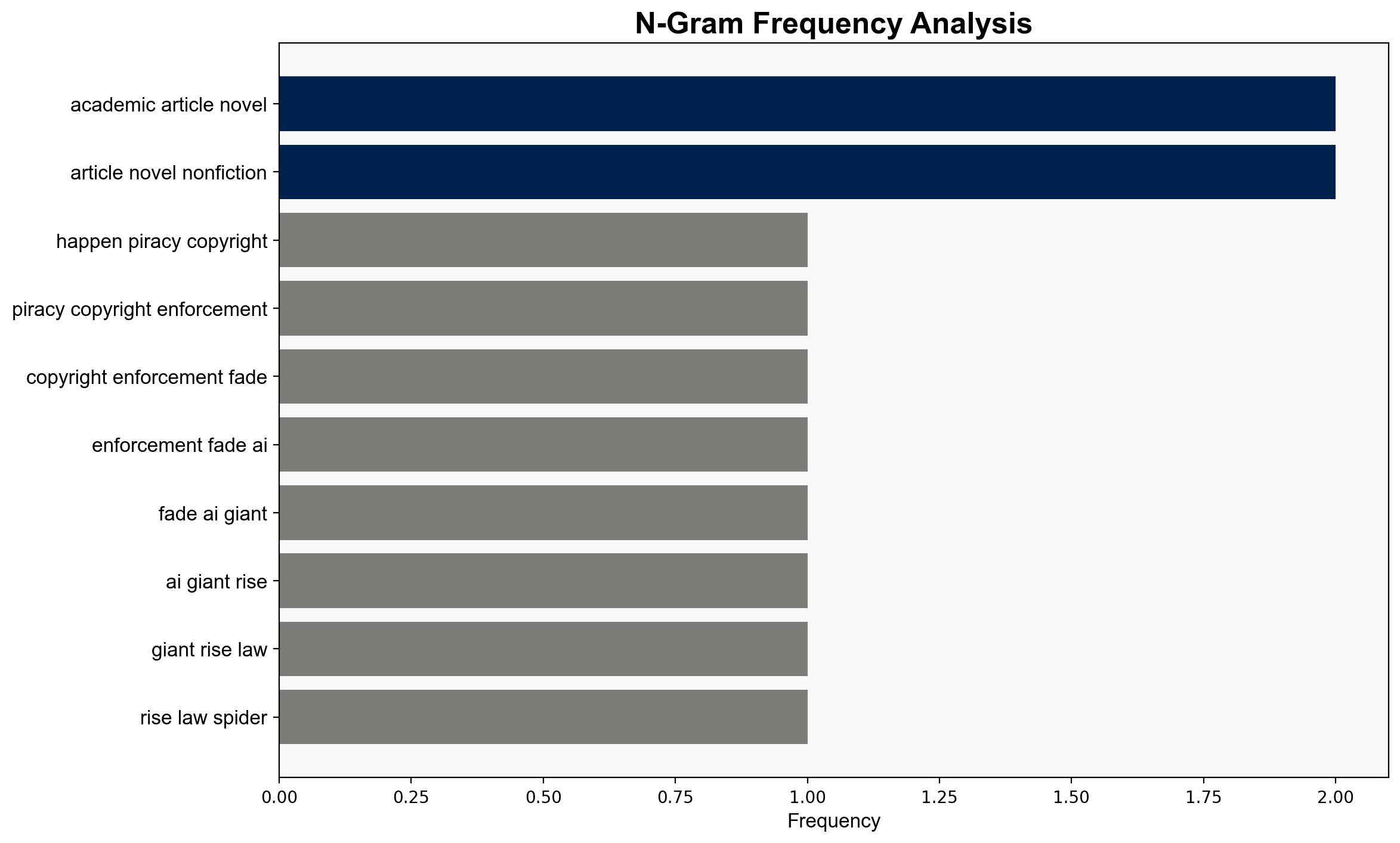What Happened to Piracy Copyright Enforcement Fades as AI Giants Rise – Leefang.com
Published on: 2025-11-05
Intelligence Report: What Happened to Piracy Copyright Enforcement Fades as AI Giants Rise – Leefang.com
1. BLUF (Bottom Line Up Front)
The decline in piracy copyright enforcement coincides with the rise of AI giants, potentially due to shifting priorities in regulatory focus and technological advancement. The most supported hypothesis suggests that AI companies are indirectly benefiting from lax enforcement to access vast data for model training. Confidence Level: Moderate. Recommended Action: Strengthen international copyright enforcement frameworks and encourage transparent AI data usage policies.
2. Competing Hypotheses
1. **Hypothesis A**: The decline in copyright enforcement is a strategic decision by governments to prioritize AI development and innovation over traditional copyright concerns, viewing AI as a critical driver of economic growth.
2. **Hypothesis B**: AI companies are exploiting the reduced enforcement environment to access copyrighted materials for training purposes, leading to a de facto relaxation of copyright laws due to the influence and lobbying power of these tech giants.
Using ACH 2.0, Hypothesis B is better supported by the evidence of AI companies using copyrighted materials without authorization, as indicated by lawsuits and internal documents. Hypothesis A lacks direct evidence of a deliberate government strategy to deprioritize copyright enforcement.
3. Key Assumptions and Red Flags
– **Assumptions**: It is assumed that AI companies require large datasets, including copyrighted materials, for effective model training. Another assumption is that governments are aware of and tacitly approve of reduced enforcement.
– **Red Flags**: The absence of explicit government statements on shifting copyright enforcement priorities. Potential cognitive bias includes overestimating the influence of AI companies on policy changes.
– **Inconsistent Data**: Lack of comprehensive data on government enforcement actions over time.
4. Implications and Strategic Risks
The decline in enforcement could lead to increased unauthorized use of copyrighted materials, undermining intellectual property rights and potentially stifling creativity. Economically, this may disadvantage smaller content creators. Cybersecurity risks include the proliferation of piracy sites. Geopolitically, tensions may rise with countries that host these sites, complicating international relations.
5. Recommendations and Outlook
- Enhance international cooperation on copyright enforcement to address cross-border piracy.
- Develop clear guidelines for AI data usage to protect intellectual property rights.
- Scenario Projections:
- Best Case: Balanced enforcement and innovation policies lead to sustainable growth in both AI and creative industries.
- Worst Case: Continued lax enforcement results in widespread piracy, harming content creators and international relations.
- Most Likely: Incremental improvements in enforcement with ongoing legal challenges against AI companies.
6. Key Individuals and Entities
– Brad Smith
– Microsoft
– Meta
– OpenAI
– Google
– Anthropic
– XAI
7. Thematic Tags
national security threats, cybersecurity, intellectual property, AI ethics, international relations





